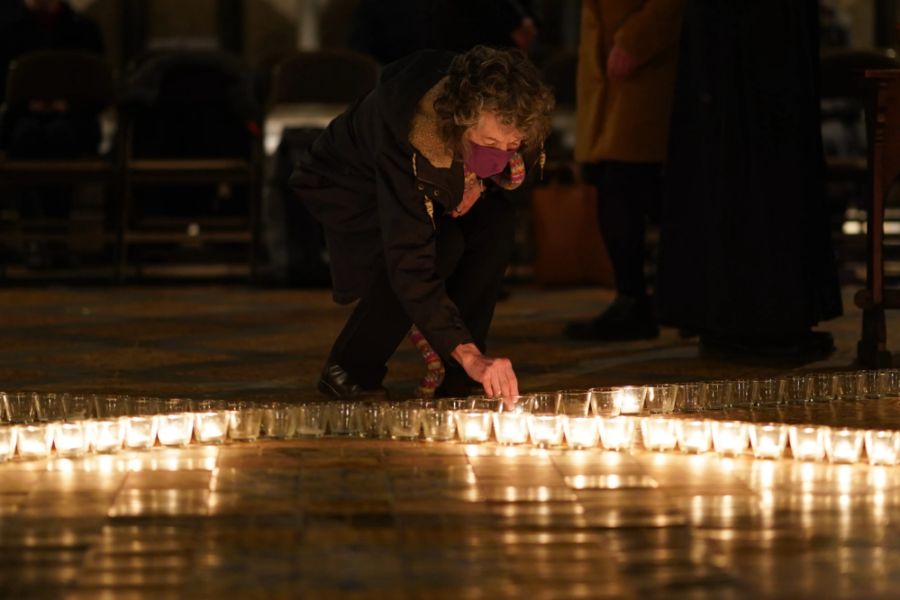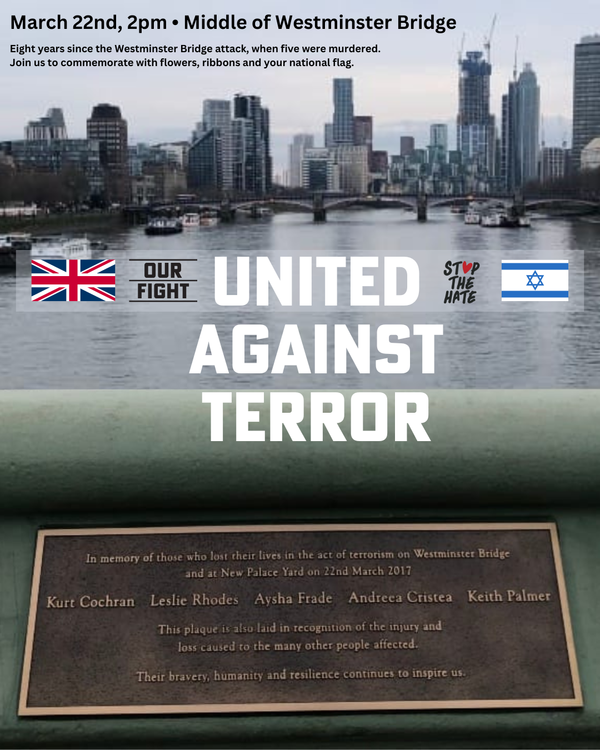Tickets on Sale for Remaking the Promise
Institutions and declarations are not enough to guarantee 'never again'; each generation must understand the Holocaust for itself. Each generation must remake that promise. Join us in London and online, on Sunday February 9th, to discuss Remaking the Promise of Never Again. Tickets are now on sale.

Nowadays it feels as if we do little more than pay lip-service to the memory of the Holocaust. Perhaps worse, wars are now routinely described as a 'genocide', and some campaign groups are even urging that Holocaust Memorial Day events are boycotted, unless the commemorations include other atrocities from more recent times. Many are seeking to undermine the centrality of anti-Semitism to the Holocaust.

This symposium, organised by Our Fight, in partnership with British Friends of Israel, and Spiked, aims to redress that balance, and arm attendees with the arguments and the confidence to push back.
Join us on Sunday February 9th, online and in North London, to discuss how we can make this, the 80th anniversary of the liberation of Auschwitz, the year that we remake the promise of 'never again'. There will be two afternoon sessions, a closing plenary with Brendan O'Neill, and a drinks reception.
Online and in-person tickets are available here:

Schedule
Afternoon Sessions
- Anti-Semitism, the Holocaust and Genocide, with Professor Philip Spencer (1.30pm to 3pm)
- Have the Arts Failed the Holocaust?, panel to be announced (3.45pm to 5.15pm)
Plenary
- Remaking the Promise of Never Again, a conversation with Brendan O'Neill (6pm to 7.45pm)
Drinks Reception
All ticket holders are welcome to join us for a drinks reception after the plenary, until 9.30pm.
Speakers
Brendan O'Neill
Brendan O'Neill is politics editor of Spiked Online, author of After the Pogrom: 7 October, Israel and the Crisis of Civilisation and known to many for being one of the first to point out the growing problem of anti-Semitism in the West amongst progressives. Brendan has also consistently argued for a bold defence of Israel as it battles for its survival against Islamism.
Professor Philip Spencer
Philip Spencer is Emeritus Professor in Holocaust and Genocide Studies at Kingston University and Visiting Professor in Politics at Birkbeck, University of London.
He is a leading scholar of genocide studies and the study of modern anti-Semitism. He was the founder and director of the Helen Bamber Centre for the Study of Rights, Conflict and Mass Violence at Kingston University. He set up and directed the pioneering joint European MA in Genocide Studies and Human Rights with the participation of universities in Italy, Germany, and Poland alongside the UK. He is on the editorial board of the Journal of Contemporary Antisemitism, and for a number of years was a trustee of the Wiener Library for the Study of the Holocaust and Genocide, where he is now a member of their academic advisory board. He is a member of the European Sociological Association Research Network for the Study of Racism and Antisemitism.
He is the author of many articles on anti-Semitism and the Holocaust, focusing particularly on the left’s mixed and often problematic responses to both. He has written a number of books including Genocide since 1945 (Routledge, 2012), Antisemitism and the left: On the return of the Jewish question (Manchester University Press, 2017) (with the late Robert Fine), and Nationalism: A Critical Introduction (Sage, 2002) (with Howard Wollman).
Background
The Holocaust was civilisation's darkest moment.
All of the structures that humanity had taken centuries to create–from the law to industry, from medicine to bureaucracy, from transport to the military to publishing–all of these developments became mobilised and subsumed to the task of exterminating Jews.
As the reality of the Shoah emerged in the years following the Second World War, the world pledged 'never again'.
Institutions and frameworks and promises were made, and yet almost before the ink was dry, the Holocaust began to lose its meaning as the primary lesson about where civilisation will go, if anti-Semitism remained unchecked.
The Vehicle of Anti-Semitism
Nowadays we do little more than pay lip-service to its memory. Perhaps worse, wars are described as a 'genocide', and some campaign groups are even urging Holocaust Memorial Day events are boycotted, unless the commemorations include other atrocities in more recent times. Many are seeking to undermine the centrality of anti-Semitism to the Holocaust.
But the journey to a war that engulfed the world, and to the final solution itself, was clearly only possible by way of the vehicle of anti-Semitism.
2025 is the year that we must put this lesson back into the heart of our understanding of the Holocaust, and at the core of the 80th anniversary of the liberation of Auschwitz.
It's clear that institutions and declarations are not enough to guarantee 'never again'; each generation must understand the Holocaust for itself. Each generation must remake that promise.
Remake the Promise in 2025
In 2025, Our Fight will be promoting and initiating a number of activities to help to remake the promise of 'never again', and this event is the first.
If you are interested in sponsoring a session or some part of this day-school, or other activities through the year, then please contact events@OurFight.uk.
Together we must ensure that 2025 is the year that we remake the promise.
Never Again.




